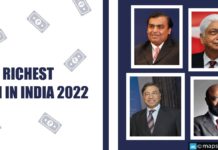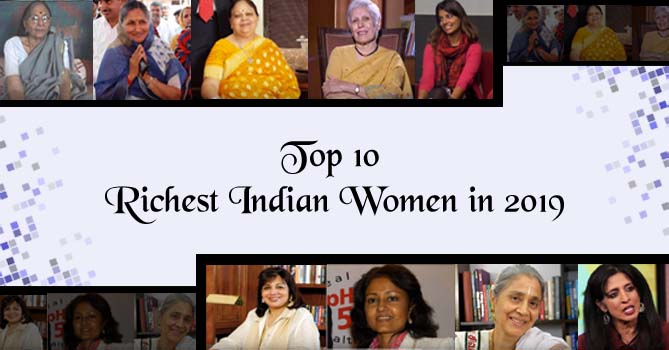After exuberant early trading sessions, equity benchmarks saw considerable consolidation in the Friday trading session. On Wednesday, the 30-share BSE Sensex hit the 28,000 mark while the 50-share NSE Nifty breached a high of 8,363.65 points. Friday’s session, however, saw a considerable decline – the BSE Sensex fell to about 27,868.63 and the Nifty closed at 8,337. But experts are hopeful that the Nifty will cross the 9,000 mark by March 2015.
Despite the lack of growth of the Nifty and the Sensex, the CNX Midcap and BSE Smallcap indices registered a growth of over one percent this week. According to provisional stock exchange data, foreign institutional investors (FII) bought Indian equities worth INR 4,981 crore this week. The stock markets were shut on Tuesday (Muharram) and Thursday (Guru Nanak Jayanti). The rupee declined and closed at 61.64 against the US dollar on Friday.
The demand is set to soar with the beginning of the wedding season, but gold (99.9 purity) price dipped to about INR 25,660 per 10 grams on Friday. The drop has been attributed to a steady improvement in the global economy. On Saturday, however, prices rose to INR 26,100 per 10 gram mainly due to investor activity.
WTO deal nears resolution
In what is being touted as a major victory for the NDA Government, the US and the European Union look close to accepting India’s demands for providing developing countries flexibility in ascertaining minimum support price (MSP) for farm products. If this comes through, the three-month impasse over the World Trade Organization’s global trade deal is likely to end as the Indian Government will then agree to sign the deal.
The WTO deal is estimated to add about USD 1 trillion to the world economy and generate some 21 million jobs worldwide. India’s refusal to sign the deal, despite the previous Government agreeing to it at the Bali ministerial summit, had caused much disappointment to the US and the EU. Relations with the US remained delicate over the past three months with India being blamed for the deadlock in the WTO Trade Facilitation Pact (TFA) talks. WTO’s very future seemed uncertain and the organization was about to abandon its consensus policy. The NDA Government has, however, remained stubborn about its refusal to ratify the TFA unless the food security issue is addressed adequately and a permanent solution found.
Mixed news for aviation
A decrease in the price of aviation turbine fuel (ATF) by about 7 percent brought relief to the stressed aviation industry in India and hiked up the stock prices of SpiceJet and Jet Airways earlier this week. The ATF prices are now hovering around INR 67 a litre, a considerable decline from INR 76 a litre as seen in 2013-14. Between January and September 2014, air passenger traffic in domestic sectors has shown a 7.5 percent increase indicating an improvement in the operating environment. Net profits of individual airlines will still depend on the debt scenario – a persistent concern for the Indian aviation industry.
Stock market authorities are considering suspension of Kingfisher Airlines shares from the start of December unless the airline prepares and declares its financial results. Vijay Mallya’s Kingfisher Airlines was once the nation’s second-largest air carrier going by the number of passengers and is currently grounded due to overwhelming debts. Apart from default on bank repayments, Kingfisher is running late on employee salaries and airport payments. The BSE and NSE have cited non-compliance of Listing Agreement as the reason for freezing the promoter shareholding of the company. From a market valuation of about INR 10,000 crore, the company’s market capitalization has now dipped to INR 150 crore with shares trading at just about INR 2 per share.
Burger King enters India
American fast food chain Burger King Worldwide is set to enter the Indian food service industry with the inauguration of its first restaurant in Delhi on November 9. The restaurant is set to open at the Select Citywalk Mall in the Capital city. The chain has plans to open about 12 outlets across the country over the next 2-3 months. Burger King is one of the largest fast food chains of the world with over 13,000 outlets in different countries. In India the chain has had a trademark registration since 1979 but it was only last year when a tie-up with the Everstone Group promised the opening of a long-awaited Burger King restaurant in the country.
Burger King, best known for its beef burgers, has had to change its menu quite extensively to suit Indian markets. It plans to sell mutton and chicken burgers and even provide vegetarian options to suit the Indian customers. With a promise to introduce mutton whoopers in India for the first time, Burger King India has launched a massive social media campaign and its Facebook page has currently over a lakh fans. The fast food chain soon expects India to become one of its largest markets comparable with Turkey and Russia; each of these countries has recently been adding on about 100 Burger King restaurants every year.
Concerns over inflation persist
The recent fall in inflation figures is not indicative of a permanent fall, according to HR Khan, Deputy Governor, Reserve Bank of India. While record low crude oil prices have played a significant role in softening the inflation levels, overall costs still remain sharp and it may be a long time before the price index sees a permanent moderation, he said. The RBI’s retail inflation target for next January is about 8 percent. More difficult than achieving this is the 6 percent target for 2016.
Because of these concerns, India Ratings, the domestic ratings agency, has lowered its economic growth estimate for the country for FY 2014-15 to 5.6 percent. The agency has blamed poor industrial performance for the revision.






